Dabiq, a town in northern Syria that has been central to the Islamic State’s apocalyptic messaging, has fallen to rebel groups backed by Turkey. The so-called caliphate’s opposition had been closing in on Dabiq for weeks, capturing nearby towns and villages. Yesterday, Turkey’s Operation Euphrates Shield posted images from inside the town, thereby demonstrating that the Islamic State’s enemies are now in control.
“I welcome today’s news that Syrian opposition forces liberated the Syrian town of Dabiq from ISIL [Islamic State] control, aided by strong support from our ally Turkey and our international coalition,” Secretary of Defense Ash Carter said in a statement on Oct. 16.
“This is more than just the latest military result against this barbaric group,” Carter continued, as Dabiq “held symbolic importance” for Abu Bakr al Baghdadi’s men.
Indeed, the Islamic State’s propagandists have repeatedly told their followers that Dabiq would be the site of an apocalyptic showdown between the true believers and the “Crusaders.” The group’s English-language magazine was named after Dabiq in a deliberate attempt to play up this imagery. Each issue of “Dabiq” contained a line from Al Qaeda in Iraq’s founder, Abu Musab al Zarqawi, who drew on preexisting Islamic beliefs. “The spark has been lit here in Iraq, and its heat will continue to intensify – by Allah’s permission – until it burns the Crusader armies in Dabiq,” Zarqawi was quoted as saying.
This passage was referenced throughout the Islamic State’s propaganda. For instance, in Nov. 2014, Mohammed Emwazi (also known as “Jihadi John” in the West) appeared in a video in which he and other jihadis beheaded a number of pilots and officers in Bashar al Assad’s military. Toward the end of the gruesome video, Emwazi stood over the severed head of American aid worker Peter Kassig and repeated Zarqawi’s line. Emwazi then added, “And here we are, burying the first American Crusader in Dabiq, eagerly waiting for the remainder of your armies.” One year later, in Nov. 2015, Emwazi was killed in a drone strike in Raqqa, Syria.
Instead of burying the “Crusaders,” however, the Islamic State was forced to retreat from the town. By itself, Dabiq is not a very significant piece of real estate. It was sparsely populated and more important locations have been seized from the Islamic State’s grip over the course of the past year. But because the self-declared caliphate made such a big deal out of the Dabiq prophesy, the town is more significant than its size would normally indicate. However, like other organizations inspired in part by apocalyptic imagery, the true believers will likely cling to ad hoc explanations for why the loss of Dabiq is not really that damaging to the jihadists’ cause.
The Islamic State has likely known for months that Dabiq would fall. Earlier this year, for example, the group produced a new English-language magazine titled “Rumiyah.” By publishing the magazine under this name, the Islamic State shifted its emphasis from the Syrian town of Dabiq to Rome. Each issue of Rumiyah opens with a line attributed to Abu Hamza al Muhajir, who cofounded the Islamic State of Iraq (ISI) in 2006. The ISI is the direct predecessor to Abu Bakr al Baghdadi’s Islamic State. “O muwahhidin, rejoice, for by Allah, we will not rest from our jihad except beneath the olive trees of Rumiyah (Rome),” Abu Hamza is quoted as saying in the magazine.
In the Islamic State’s English-language mythology, therefore, the imagined fall of Rome replaced an end-times battle for Dabiq. Neither are remotely close to being a reality. It remains to be seen if Dabiq is reintroduced as the title for an English-language jihadi publication. And it is likely that Dabiq will still be referenced in the group’s propaganda, albeit with less emphasis in the near-term.
In addition to announcing the capture of Dabiq, Turkey’s Euphrates Shield produced a map demonstrating that more than 1,300 square kilometers of territory along the Syrian border has been seized from the Islamic State since August. The official Twitter feed for Euphrates Shield also published the images below of Turkish-backed forces fighting in Dabiq.
Images from Dabiq posted on the Operation Euphrates Shield Twitter feed:
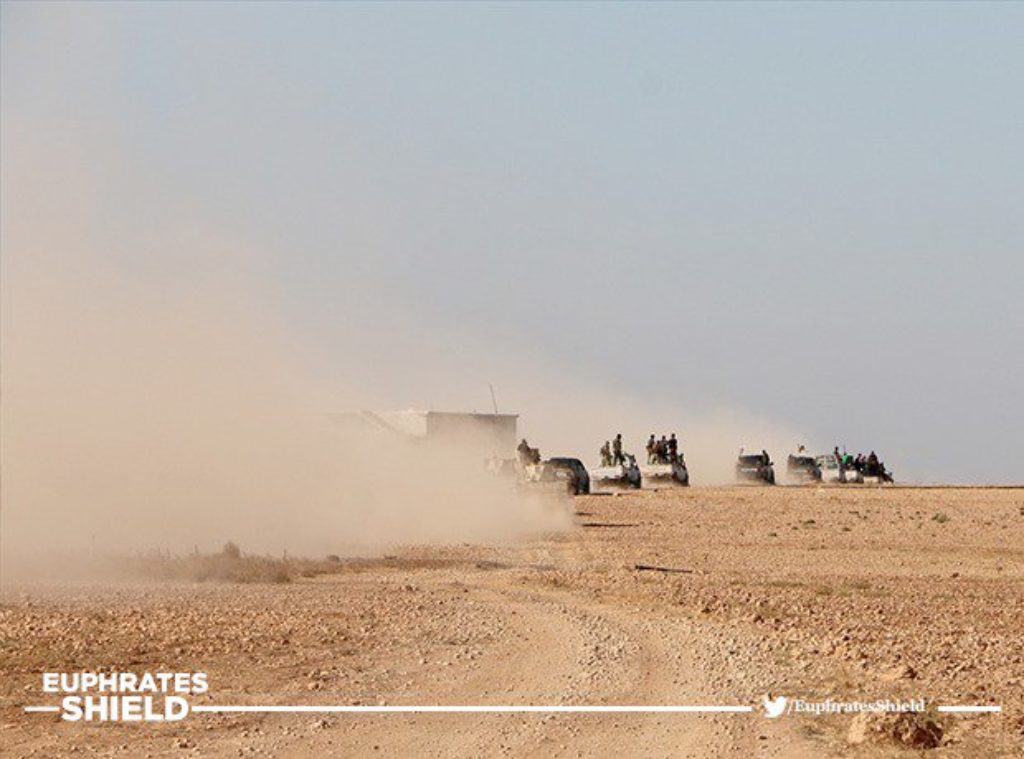
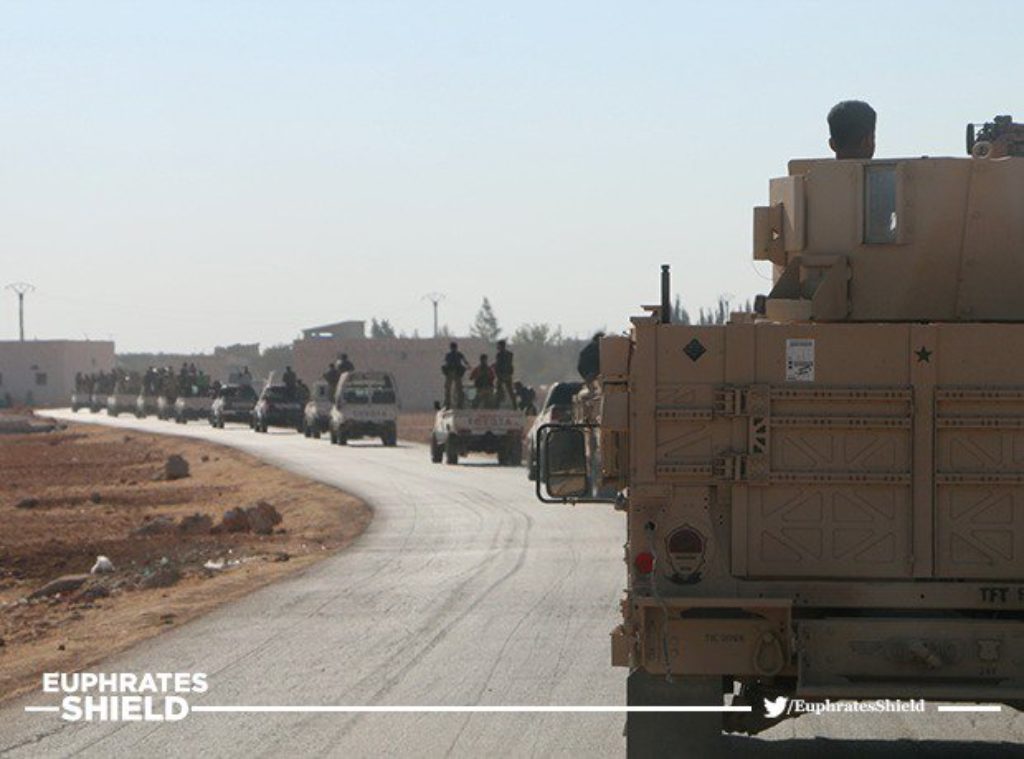
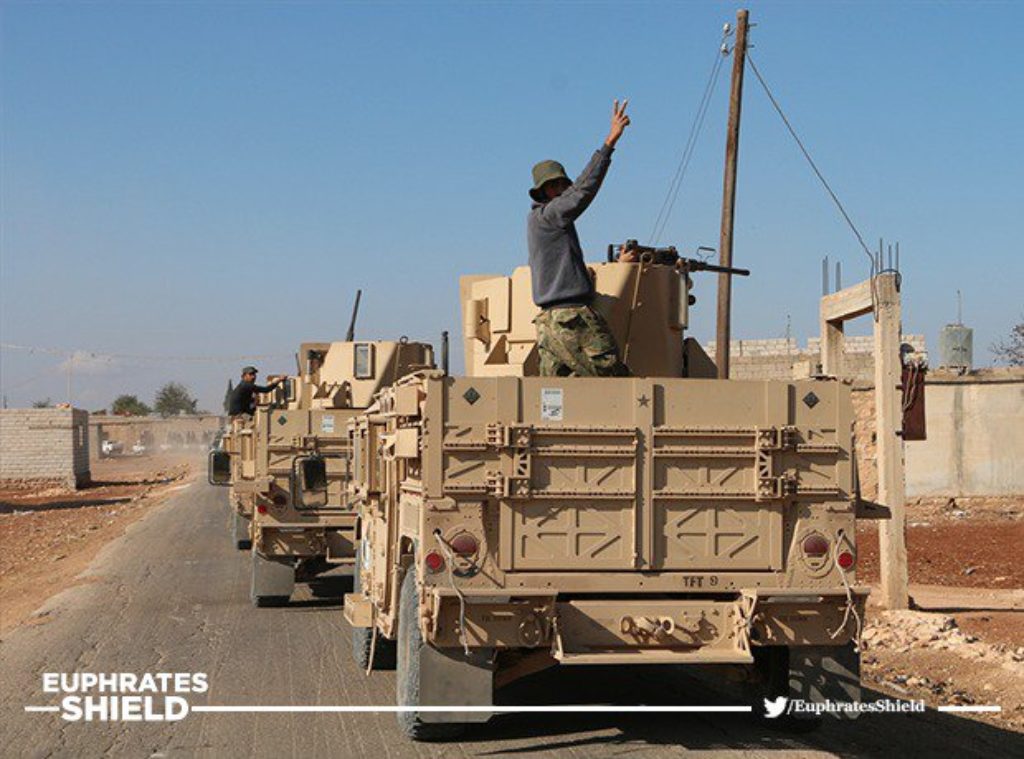
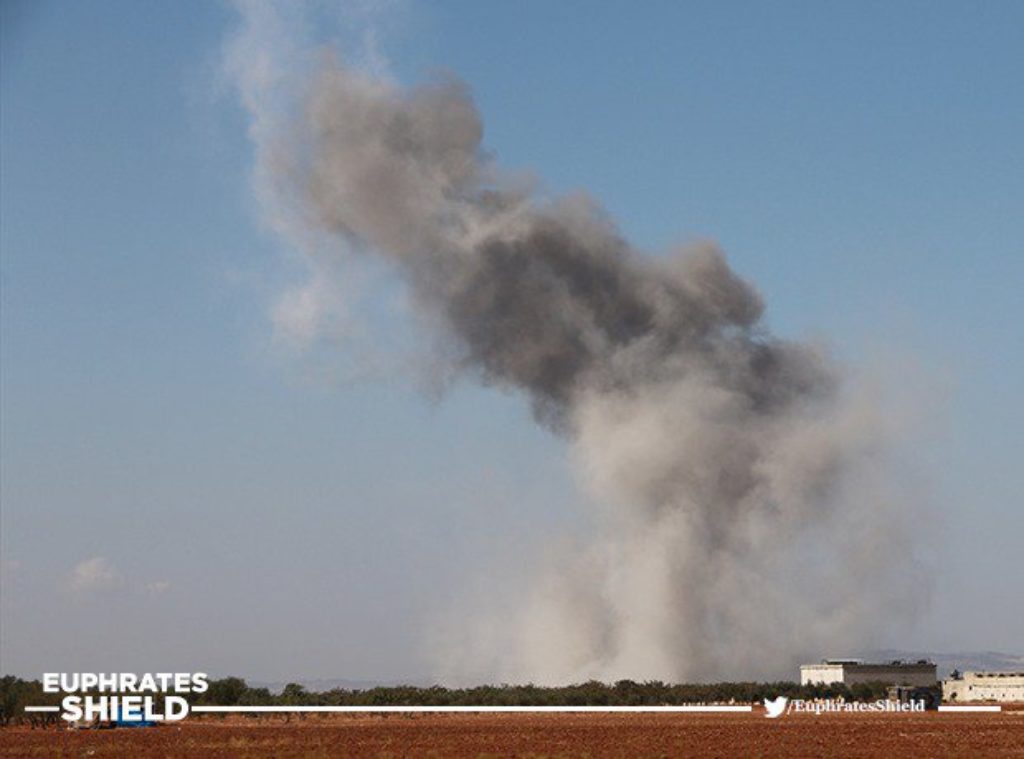
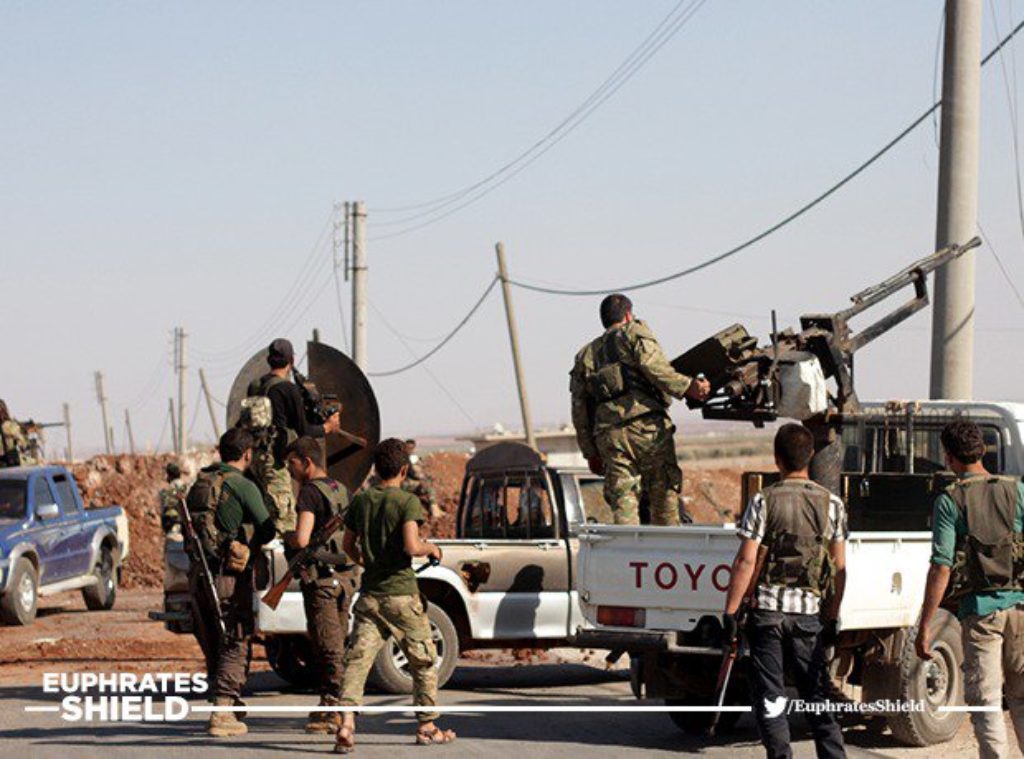
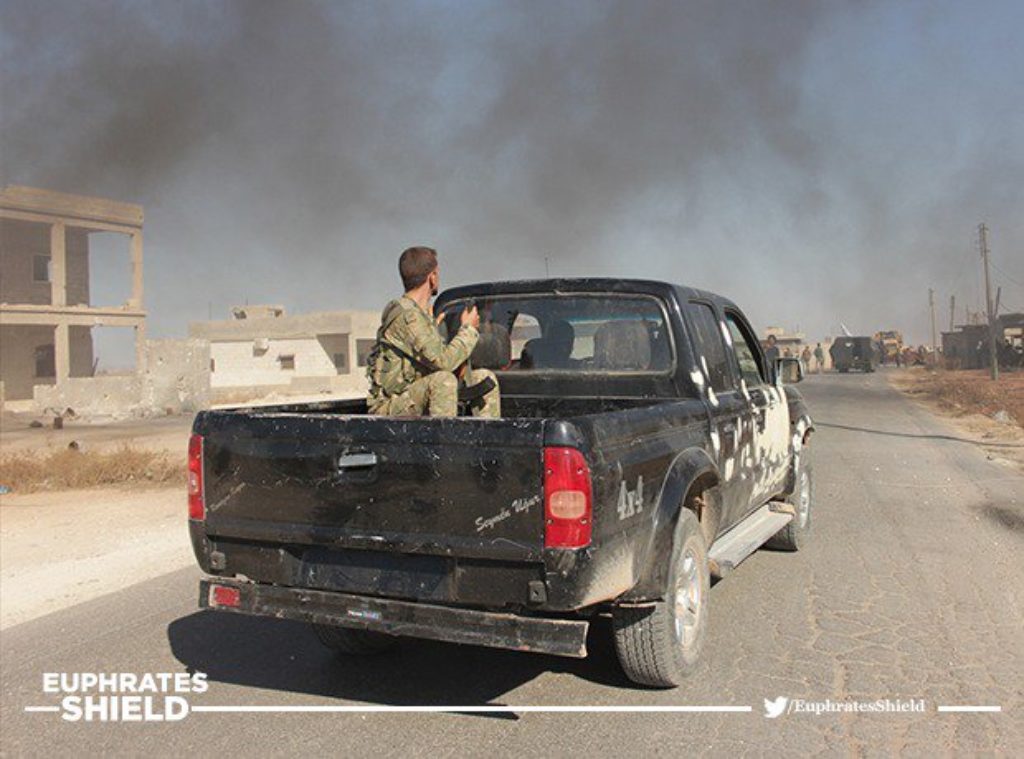
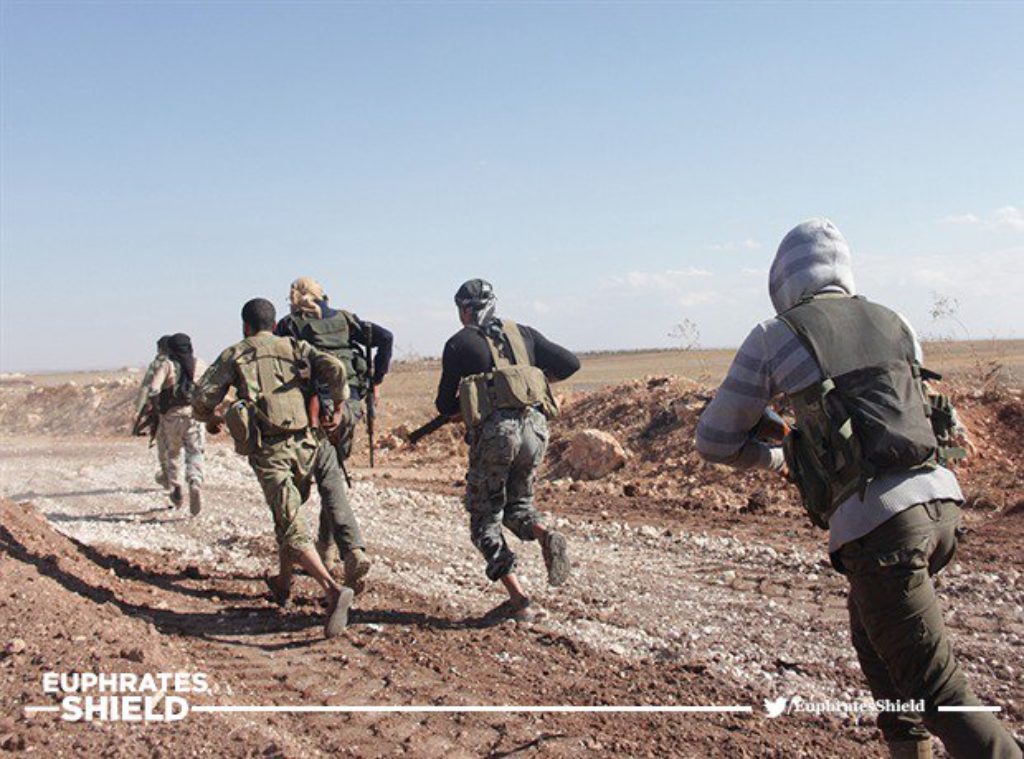
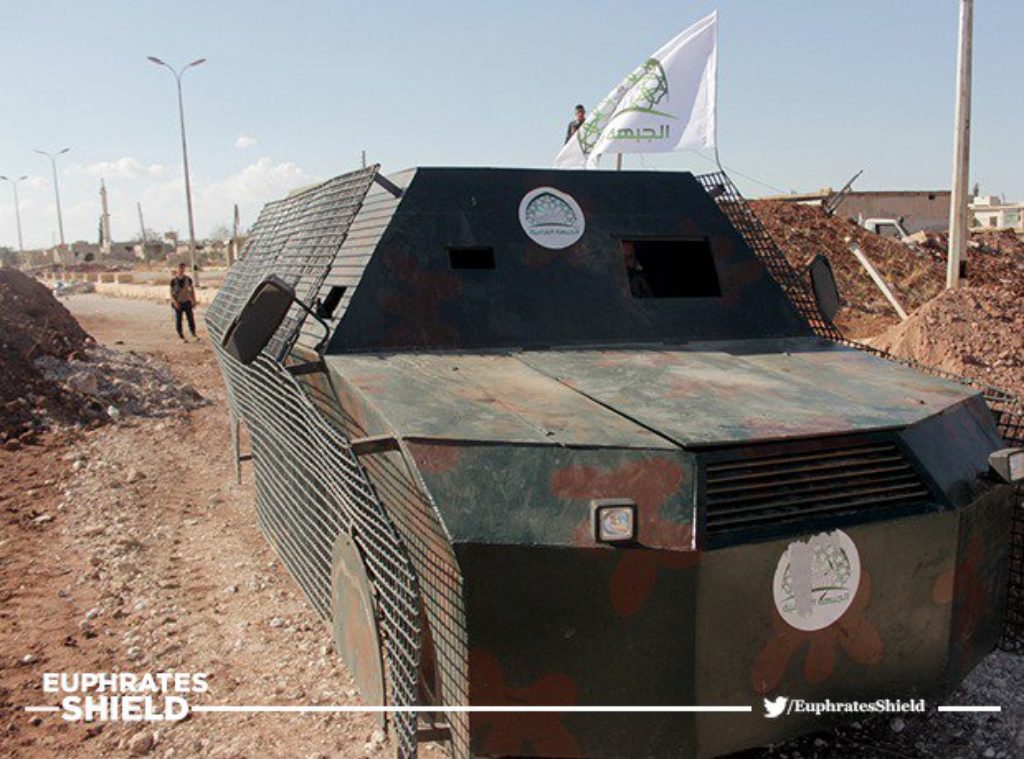
Are you a dedicated reader of FDD's Long War Journal? Has our research benefitted you or your team over the years? Support our independent reporting and analysis today by considering a one-time or monthly donation. Thanks for reading! You can make a tax-deductible donation here.








2 Comments
Oh how fast the winds of change, And with it comes a whole new set of circumstances just as mind-boggling. Who knows what will be 365 days from here?
So, Tukey is a stronger player in SWA than ever before. Regretably, it is also more aligned with Islamic states and more distant from the United States than ever before.